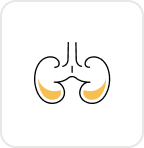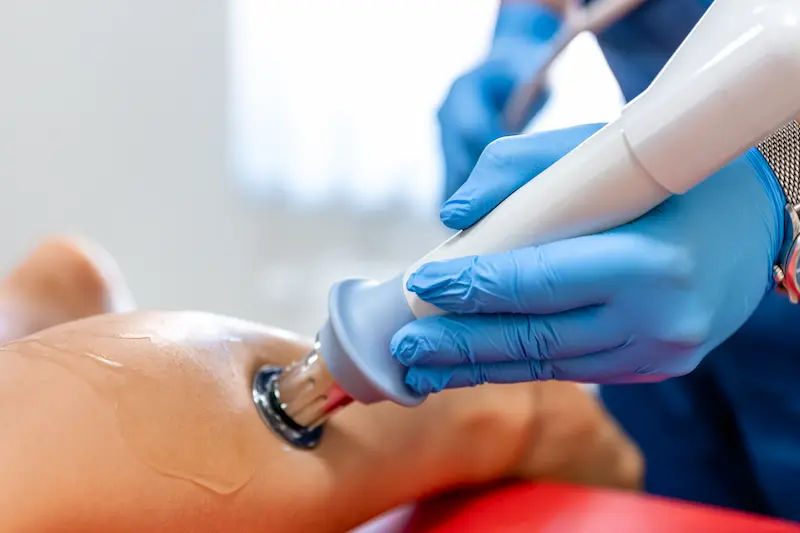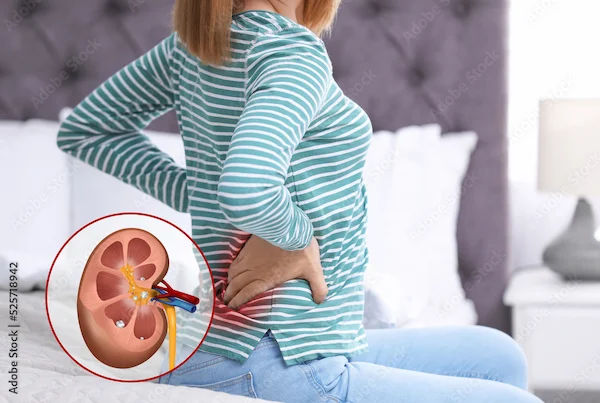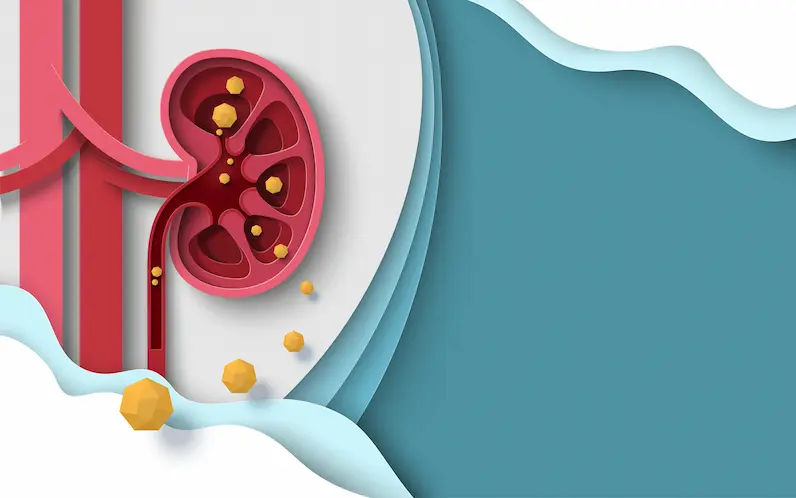Your Guide to Kidney Stones Treatment: From Pain Relief to Prevention
Learn about kidney stone treatment options, from home remedies for small stones to advanced procedures for larger ones, plus prevention tips to stop them returning.

Written by Dr. M L Ezhilarasan
Reviewed by Dr. Dhankecha Mayank Dineshbhai MBBS
Last updated on 13th Jan, 2026

Introduction
That sudden, sharp, cramping pain in your back or side, often described as one of the most severe pains a person can experience, is frequently the first sign of kidney stones. These hard, crystalline mineral deposits form in your kidneys and can travel down the urinary tract, causing significant discomfort. If you are reading this, you or a loved one may be seeking clarity and relief. The good news is that modern medicine offers a wide range of effective kidney stone treatment options, tailored to the size, type, and location of the stone.
This guide is designed to be your complete resource, walking you through everything from understanding what kidney stones are to the medical procedures available. We will cover how to manage the pain at home for smaller stones, explain the minimally invasive techniques that can break up larger ones, and outline the dietary and lifestyle changes that can help prevent them from coming back. Understanding your treatment options is the first step toward reclaiming your health and comfort.
Understanding Kidney Stones: The First Step to Treatment
Before diving into treatments, it is helpful to know what you are dealing with. Kidney stones are not a single entity; they vary in composition and cause, which can influence the best course of action.
What Exactly Are Kidney Stones?
Kidney stones, also called nephrolithiasis, form when substances in your urine such as calcium, oxalate, and uric acid become highly concentrated. When these crystals clump together, they create a solid mass. Stones can be as small as a grain of sand or, in rare cases, grow to the size of a golf ball.
The most common type is calcium oxalate stones, but other types include uric acid stones (often linked to a high-protein diet), struvite stones (which can form after a urinary tract infection), and cystine stones (a rare, inherited condition).
Common Symptoms That Signal a Problem
Many small stones pass unnoticed. However, when a stone moves into the ureter, the narrow tube connecting the kidney to the bladder, it can cause a blockage and trigger clear symptoms.
Common signs include:
- Severe Pain: Known as renal colic, this pain comes in waves and can be felt in the back or side, below the ribs, sometimes radiating to the abdomen and groin.
- Painful Urination: A burning sensation when passing urine.
Changes in Urine: Blood may make urine pink, red, or brown. Urine can also become cloudy or foul-smelling. - Other Symptoms: A constant urge to urinate, passing only small amounts, nausea, and vomiting.
The location of pain can also indicate where the stone is. Pain in the back or side suggests it is in the kidney or upper ureter. As it moves closer to the bladder, pain often shifts to the lower abdomen and groin.
Consult Top Doctors for Your Symptoms
Diagnosis: How Doctors Identify Your Stone
Effective treatment begins with an accurate diagnosis. If you suspect a kidney stone, your doctor will use specific tests to confirm and plan the right treatment.
Common Diagnostic Tests
A doctor will usually start with a physical exam and your medical history. Tests may include:
- Imaging Tests: A non-contrast CT scan is the gold standard, showing the exact size and location of stones. X-rays and ultrasound may also be used.
- Urine Analysis: A 24-hour urine collection can detect high levels of stone-forming substances.
- Blood Tests: These may show high calcium or uric acid levels.
- Stone Analysis: If you pass a stone, laboratory analysis can identify its type, helping to plan prevention.
If your condition requires removal, consulting a urologist online with Apollo24|7 can be a convenient way to discuss diagnostic options.
Get Your Health Assessment Done
Kidney Stones Treatment Options: A Size-Based Approach
The size of the stone is the most important factor when deciding on treatment. Small stones may pass naturally, while larger ones often need medical intervention.
A. Treatment for Small Stones (Less than 5mm)
Small stones have a good chance of passing on their own. The focus is on pain relief and supporting their passage.
1. Natural Passage and Home Remedies
Conservative management is often enough for small stones. This includes:
- Hydration: Drinking 2–3 litres of water daily helps flush the stone. Lemon water may help due to citrate, which reduces stone formation.
- Pain Relief: Over-the-counter pain relievers such as ibuprofen can help.
- Activity: Moving around may encourage the stone to pass.
2. Medical Expulsive Therapy (MET)
If a stone is slow to pass, your doctor may prescribe alpha-blocker medication such as Tamsulosin. This relaxes the ureter muscles, easing the stone’s passage and reducing discomfort.
B. Treatment for Larger Stones (Greater than 5mm)
Larger stones are less likely to pass naturally and may need procedures to prevent damage or severe pain.
1. Shock Wave Lithotripsy (SWL)
SWL is commonly used for stones up to 10mm in the kidney or upper ureter. High-energy sound waves break the stone into small fragments that can then be passed in the urine.
2. Ureteroscopy with Laser Lithotripsy
For stones in the lower ureter or those resistant to SWL, a ureteroscopy is often used. A thin scope is inserted through the urinary tract, and a laser breaks up the stone. Fragments are then removed.
3. Percutaneous Nephrolithotomy (PCNL)
For very large stones, especially over 2 cm, PCNL is recommended. Performed under general anaesthesia, a small incision in the back allows direct access to the kidney to remove the stone. It is highly effective but requires a hospital stay.
The choice between these methods depends not only on size but also on stone density. Very dense stones may not respond well to SWL, making ureteroscopy a better choice.
Preventing Future Kidney Stones: Your Long-Term Strategy
Having one kidney stone increases your risk of another within the next 5–10 years. Prevention is therefore essential.
1. The #1 Rule: Stay Hydrated
Producing 2.5 litres of urine a day, usually by drinking 8–10 glasses of water, is the most effective preventive step. Aim for pale or clear urine as a sign of good hydration.
2. Dietary Changes Based on Stone Type
Prevention depends on stone type. For calcium oxalate stones, reduce oxalate-rich foods such as spinach and nuts, but do not cut calcium, as it helps bind oxalate in the gut. For uric acid stones, reduce red meat and fish, and follow a more alkaline diet with fruits and vegetables.
3. Medications for Recurrent Stone Formers
If lifestyle changes are not enough, medications may be prescribed. Thiazide diuretics can lower calcium in urine, while potassium citrate helps make urine less acidic.
Conclusion
Living with kidney stones can be painful and worrying, but knowing your treatment options can make the process less daunting. Small stones often pass naturally with the right support, while modern, minimally invasive procedures are highly effective for larger ones. Beyond treatment, prevention is vital. Simple measures such as drinking more water, adjusting your diet, and taking medication if required can greatly reduce the chance of recurrence.
If you experience severe pain, fever, or cannot pass urine, seek emergency care. For ongoing management and tailored prevention, booking a consultation with a urologist through Apollo24|7 can help you access expert advice without leaving home. By taking proactive steps now, you can protect your kidney health and avoid future episodes.
Consult Top Doctors for Your Symptoms
Get Your Health Assessment Done
₹329(₹822)60% off
₹1029(₹2573)60% off
₹289(₹723)60% off
₹309(₹773)60% off
Consult Top Doctors for Your Symptoms

Dr. Manju Kamal
Nephrologist
12 Years • MBBS,MD(General Medicine), DNB,DM(Nephrology)
Angamaly
Apollo Hospitals Karukutty, Angamaly
Dr Ch Sashidhar
Nephrologist
20 Years • MBBS, MD General Medicine, DNB, Nephrology
Secunderabad
Apollo Hospitals Secunderabad, Secunderabad

Dr. Ashwini Kumar Aiyangar
Nephrologist
16 Years • MBBS DNB(INT.MED) DNB(NEPH)
Secunderabad
Apollo Hospitals Secunderabad, Secunderabad
(125+ Patients)

Dr. Kity Sarkar
Nephrologist
15 Years • MBBS,MD(Genl. Med.), DrNB(NEPHROLOGY)
Kolkata
Dr. Kity Sarkar's Clinic, Kolkata

Dr. Akash Deep Suri
Nephrologist
17 Years • MD,DM,DNB
Bhopal
Apollo Sage Hospitals, Bhopal
(25+ Patients)
Consult Top Doctors for Your Symptoms

Dr. Manju Kamal
Nephrologist
12 Years • MBBS,MD(General Medicine), DNB,DM(Nephrology)
Angamaly
Apollo Hospitals Karukutty, Angamaly
Dr Ch Sashidhar
Nephrologist
20 Years • MBBS, MD General Medicine, DNB, Nephrology
Secunderabad
Apollo Hospitals Secunderabad, Secunderabad

Dr. Ashwini Kumar Aiyangar
Nephrologist
16 Years • MBBS DNB(INT.MED) DNB(NEPH)
Secunderabad
Apollo Hospitals Secunderabad, Secunderabad
(125+ Patients)

Dr. Kity Sarkar
Nephrologist
15 Years • MBBS,MD(Genl. Med.), DrNB(NEPHROLOGY)
Kolkata
Dr. Kity Sarkar's Clinic, Kolkata

Dr. Akash Deep Suri
Nephrologist
17 Years • MD,DM,DNB
Bhopal
Apollo Sage Hospitals, Bhopal
(25+ Patients)
More articles from Kidney stones
Frequently Asked Questions
What is the fastest way to dissolve a kidney stone?
There is no instant way to dissolve most kidney stones. Uric acid stones may dissolve over time with potassium citrate, but calcium oxalate stones must pass or be treated with procedures.
How long does it take to pass a 4mm kidney stone?
A 4mm stone often passes naturally within a few days to 2–3 weeks. Hydration and Medical Expulsive Therapy may speed up the process.
Can diet alone prevent all kidney stones?
Diet is a key part of prevention but may not be enough for everyone. Some people have metabolic conditions that require medication to prevent stones.
Is kidney stone surgery very painful?
Procedures such as SWL and ureteroscopy are done under anaesthesia, so you will not feel pain during surgery. Some post-procedure discomfort is normal but manageable with medication.
When should I go to the hospital for kidney stone pain?
Seek emergency care if pain is severe and unrelenting, if you have a fever or chills, if you cannot keep fluids down, or if you are unable to urinate.




.webp)

